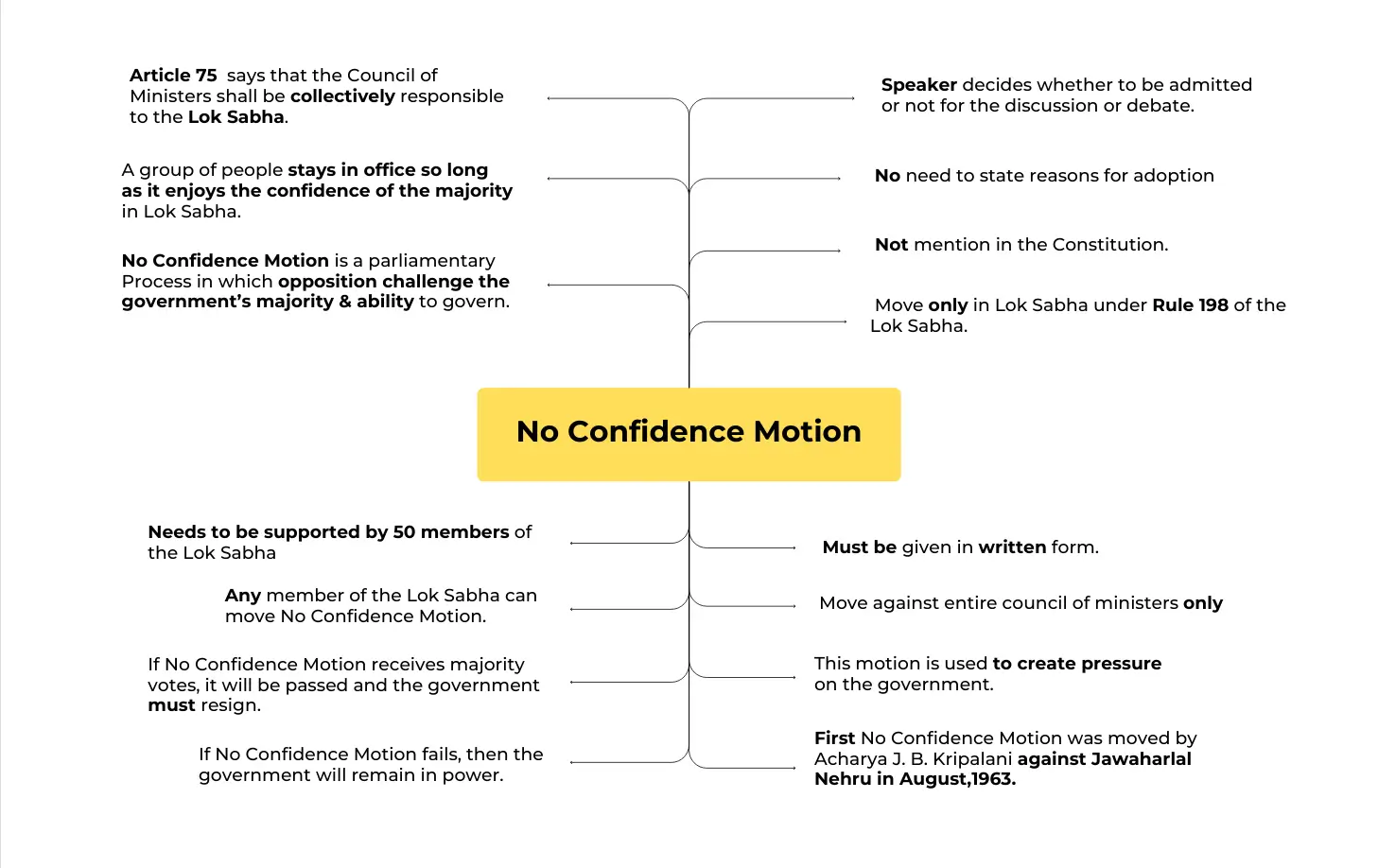A No Confidence Motion is considered one of the significant parliamentary tools or devices. It primarily used to create pressure on the ruling government to ensure the accountability and effective governance.

No Confidence Motion Mind map
No Confidence Motion is a parliamentary Process in which opposition challenges the government’s majority & ability to govern.
Article 75 of the Constitution says that the Council of Ministers shall be collectively responsible to the Lok Sabha. In other words, a group of people stays in office so long as it enjoys the confidence of the majority in Lok Sabha.
This motion can be moved only in Lok Sabha under Rule 198 of the Lok Sabha. Any member of the Lok Sabha can move No Confidence Motion. The No Confidence Motion needs to be supported by 50 members of the Lok Sabha to be admitted.
There is no need to state reasons for the adoption of No Confidence Motion. It must be given in written form. It is not mentioned in the Constitution. It can be moved against entire council of ministers only.
The speaker of the Lok Sabha decides whether the motion needs to be admitted or not for discussion or debate.
If No Confidence Motion receives majority votes, it will be passed and the government must resign. If No Confidence Motion fails, then the government will remain in power.
This motion is used to create pressure on the government.
The first No Confidence Motion was moved by Acharya J. B. Kripalani against Jawaharlal Nehru in August 1963.
Censure Motionvs No Confidence Motion
| Censure Motion | No Confidence Motion |
|---|---|
| It should state the reasons for its adoption in the Lok Sabha. | It need not state the reasons for its adoption in the Lok Sabha. |
| It can be moved against an individual minister or a group of ministers or the entire council of ministers. | It can be moved against the entire council of ministers only. |
| It is moved for censuring the council of ministers for specific policies and actions. | It is moved for ascertaining the confidence of Lok Sabha in the council of ministers. |
| If it is passed in the Lok Sabha, the council of ministers need not resign from the office. | If it is passed in the Lok Sabha, the council of ministers must resign from office. |
